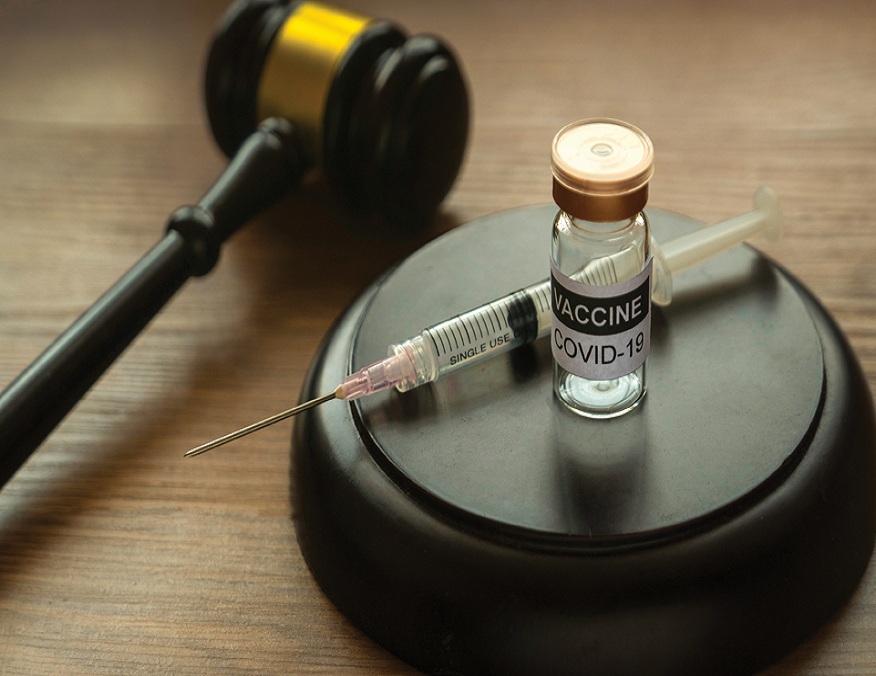Vaccines are an essential part of modern medicine, providing protection against a range of infectious diseases. However, like all medical interventions, they carry risks. To ensure that people who experience vaccine-related injuries receive compensation, the United States Congress established the National Vaccine Injury Compensation Program (NVICP) in 1986. In this article, we will examine the impact of the NVICP on public health policy and vaccine safety.
What is the National Vaccine Injury Compensation Program (NVICP)?
The NVICP, also known as the “Vaccine Court,” is a federal program that provides compensation to individuals who have suffered vaccine-related injuries or illnesses. The program was established under the National Childhood Vaccine Injury Act of 1986, which was passed by Congress in response to a growing number of lawsuits against vaccine manufacturers. The Act created a no-fault system for compensating individuals who experience vaccine-related injuries, and it established a fund to pay for the compensation awards.
The NVICP is administered by the U.S. Department of Health and Human Services (HHS) and is overseen by the Court of Federal Claims. The Court is responsible for hearing claims from individuals who believe they have been injured by vaccines and for awarding compensation to those who meet the program’s requirements.
How has the NVICP impacted public health policy?
The establishment of the NVICP has had a significant impact on public health policy. Prior to the creation of the program, vaccine manufacturers faced a growing number of lawsuits from individuals who claimed that vaccines had caused them harm. These lawsuits were costly and time-consuming, and they put a strain on the vaccine industry.
The NVICP has helped to reduce the number of lawsuits against vaccine manufacturers by providing a no-fault system for compensating individuals who experience vaccine-related injuries. This has helped to stabilize the vaccine industry and has ensured that vaccines remain available to the public.
The program has also encouraged vaccine research and development by providing a predictable and stable legal environment for manufacturers. This has led to the development of new and improved vaccines, which have helped to reduce the incidence of vaccine-preventable diseases.
In addition, the NVICP has played a significant role in maintaining public confidence in vaccines. By providing compensation to individuals who have been injured by vaccines, the program has helped to reassure the public that vaccines are safe and effective. This has helped to maintain high vaccination rates and has prevented the resurgence of vaccine-preventable diseases.
How has the NVICP impacted vaccine safety?
The NVICP has had a positive impact on vaccine safety. The program has established a comprehensive system for monitoring the safety of vaccines and for investigating reports of vaccine-related injuries. This system has helped to identify rare but serious vaccine-related adverse events and has led to improvements in vaccine safety.
The program has also helped to promote transparency and accountability in the vaccine industry. Vaccine manufacturers are required to report all adverse events associated with their products to the Vaccine Adverse Event Reporting System (VAERS). This information is then used by the NVICP to determine the safety of vaccines and to make compensation decisions.
In addition, the NVICP has provided funding for research into vaccine safety. This research has led to a better understanding of the risks and benefits of vaccines and has helped to identify ways to improve vaccine safety.
What are some criticisms of the NVICP?
While the NVICP has been largely successful in achieving its goals, there are some criticisms of the program. One criticism is that the compensation process can be slow and bureaucratic, which can be frustrating for individuals seeking compensation.
Another criticism is that the program is funded by a tax on vaccines, which some argue increases the cost of vaccines and makes them less accessible to some individuals.
Finally, some critics argue that the program provides a shield of immunity for vaccine manufacturers, which can discourage them from improving the safety of their products. They also argue that the program does not provide enough compensation for individuals who have been seriously injured by vaccines, and that it can be difficult for individuals to prove that their injuries were caused by vaccines.
However, it is important to note that the NVICP provides a no-fault system for compensating individuals who experience vaccine-related injuries. This means that individuals do not need to prove that their injuries were caused by vaccines in order to receive compensation. Instead, they must show that their injuries meet certain criteria established by the program.
In addition, the program has been successful in promoting vaccine safety and in maintaining public confidence in vaccines. While there is always room for improvement, the NVICP has played an important role in ensuring that vaccines remain safe and effective.
Conclusion
The National Vaccine Injury Compensation Program has had a significant impact on public health policy and vaccine safety. By providing a no-fault system for compensating individuals who experience vaccine-related injuries, the program has helped to stabilize the vaccine industry and has ensured that vaccines remain available to the public. The program has also helped to promote transparency and accountability in the vaccine industry, and has led to improvements in vaccine safety.
While there are some criticisms of the program, it is important to recognize the important role that the NVICP has played in maintaining public confidence in vaccines and in ensuring that vaccines remain safe and effective. As new vaccines are developed and introduced, the NVICP will continue to play an important role in protecting public health and safety.
As vaccine attorneys, we understand the importance of the National Vaccine Injury Compensation Program (NVICP) in protecting the public’s health and ensuring that vaccines remain available to everyone. If you or a loved one has suffered an adverse reaction to a vaccine, it is important to seek legal advice from Vaccine Law.



